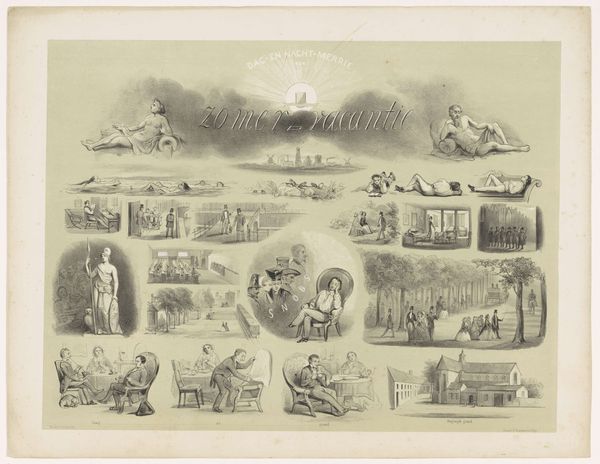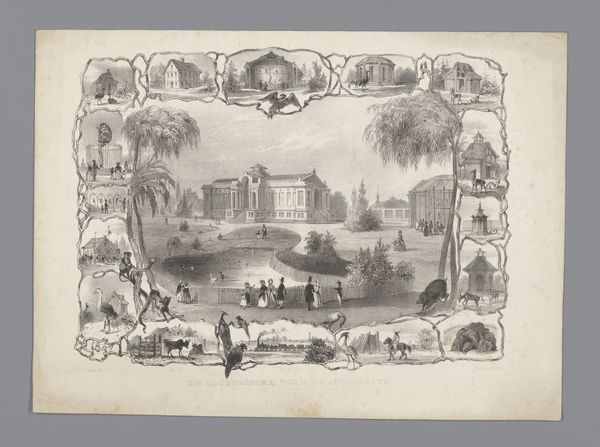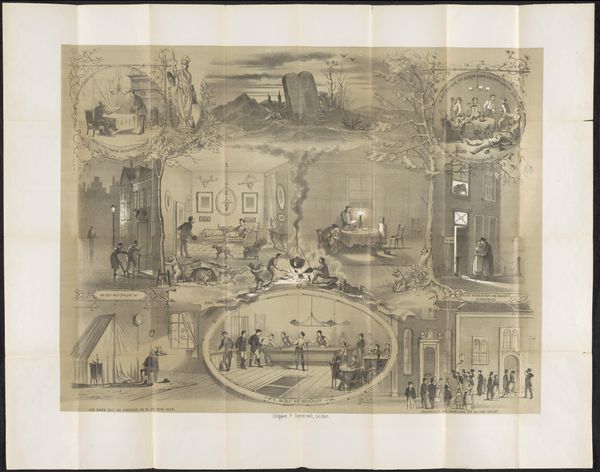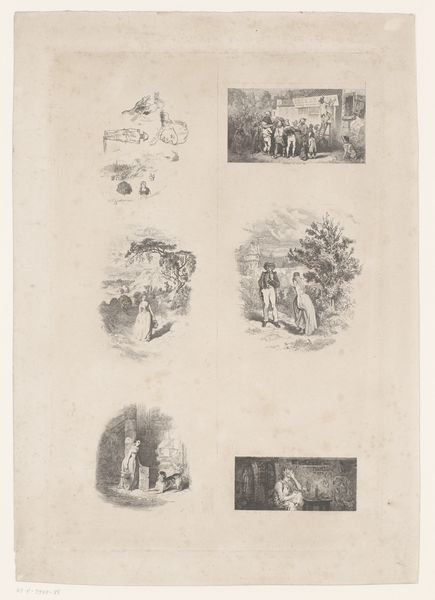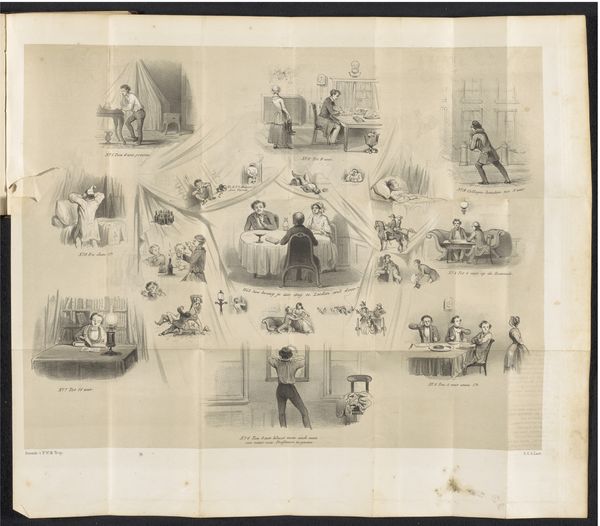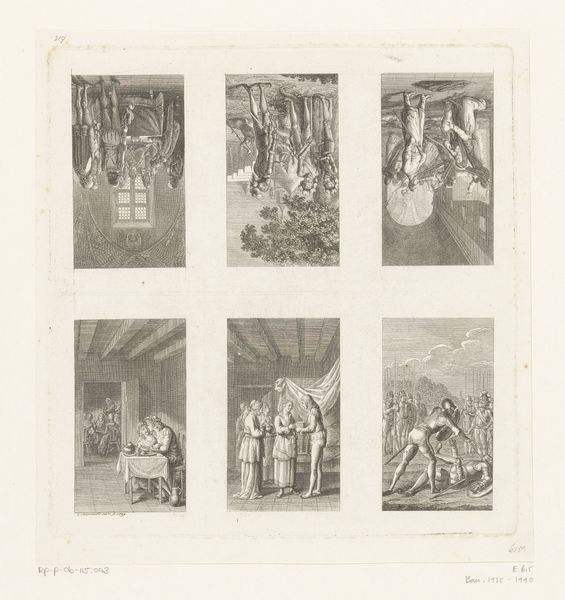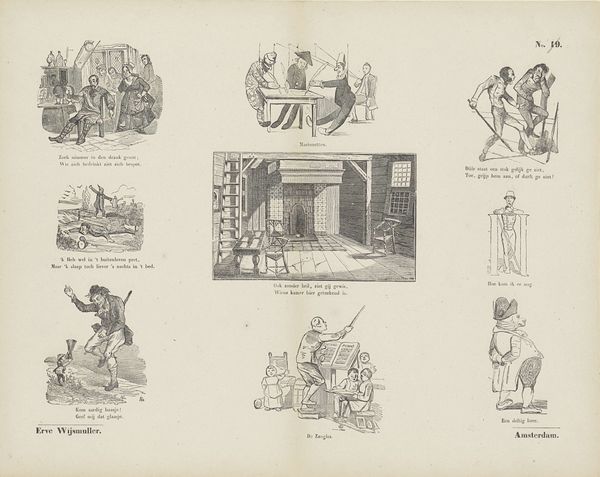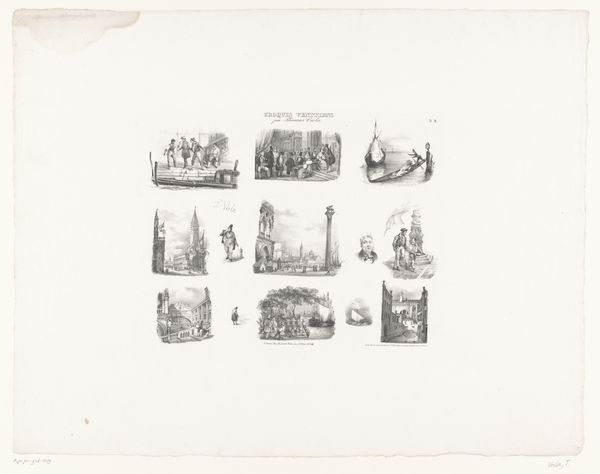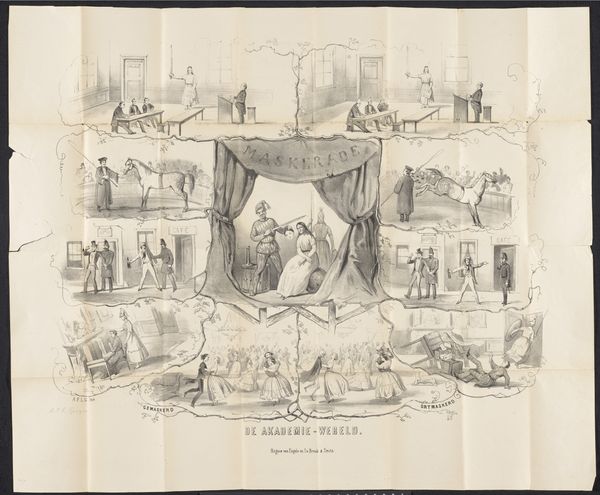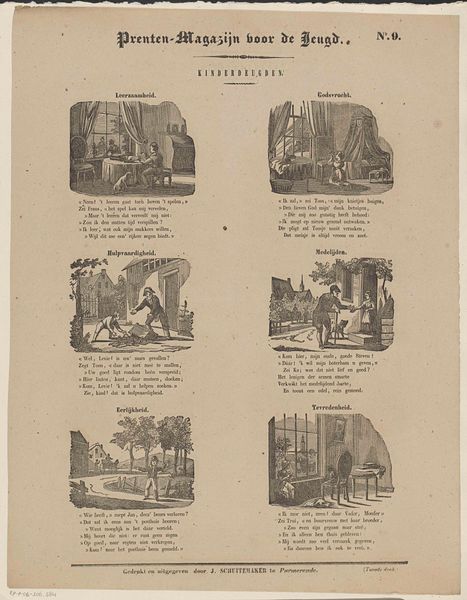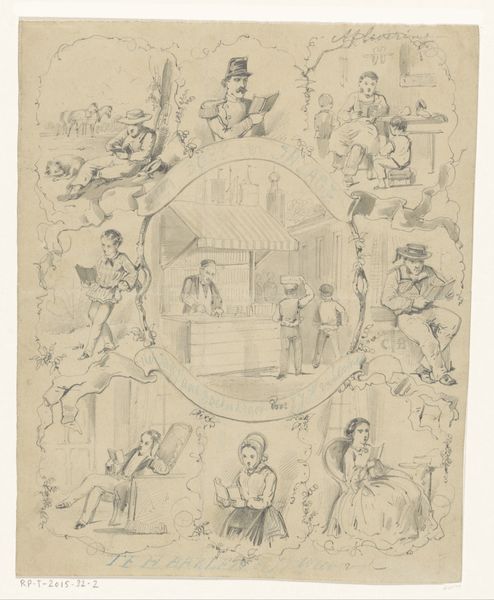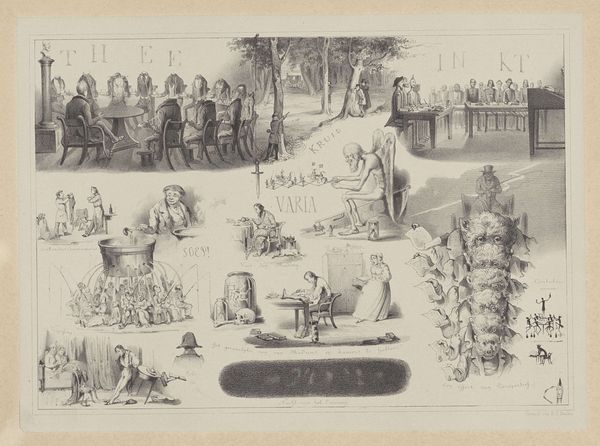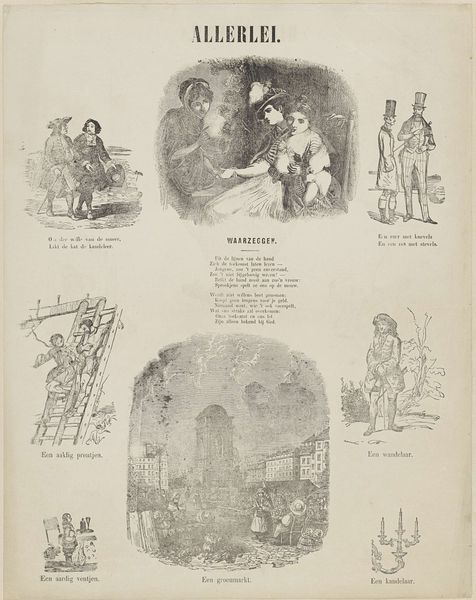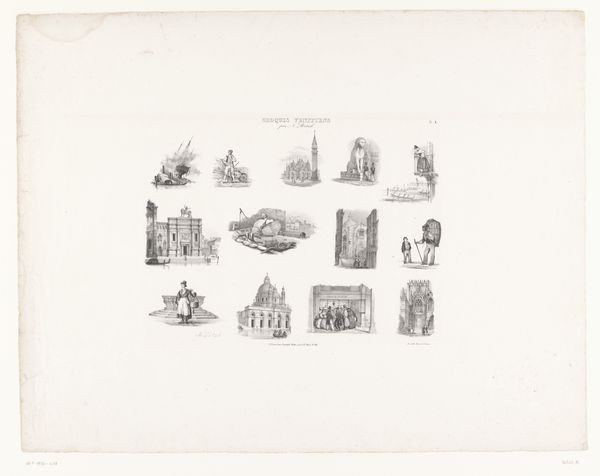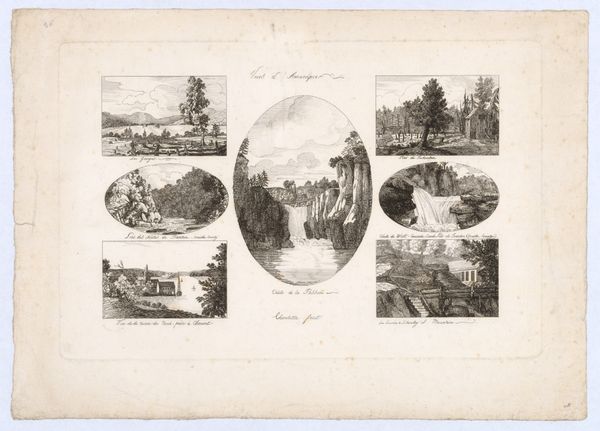
drawing, paper, ink
#
drawing
#
narrative-art
#
paper
#
ink
#
cityscape
#
genre-painting
#
academic-art
Dimensions: height 495 mm, width 630 mm
Copyright: Rijks Museum: Open Domain
This 'Sheet from the Utrecht Student Almanac' was made in 1859, using the printmaking technique of lithography. The graphic quality owes a lot to the specific kind of stone used in lithography, which must be of a very particular geological type. The imagery is rendered on the flat surface of the stone, using greasy materials, and then chemically treated so that ink adheres only to those drawn areas. The matrix is then repeatedly inked and printed. Lithography allowed for a relatively quick and economic means of graphic reproduction, perfect for widespread dissemination. Here, the scenes of student life are rendered with a sharp eye for detail and social commentary. From the lecture hall to the late-night revelry, these images collectively paint a vivid picture of the student experience, and provide a fascinating lens through which to view the rituals of the social class at that time. By considering materials, techniques, and historical context, we can fully appreciate the significance of what may initially appear to be a simple print.
Comments
No comments
Be the first to comment and join the conversation on the ultimate creative platform.
